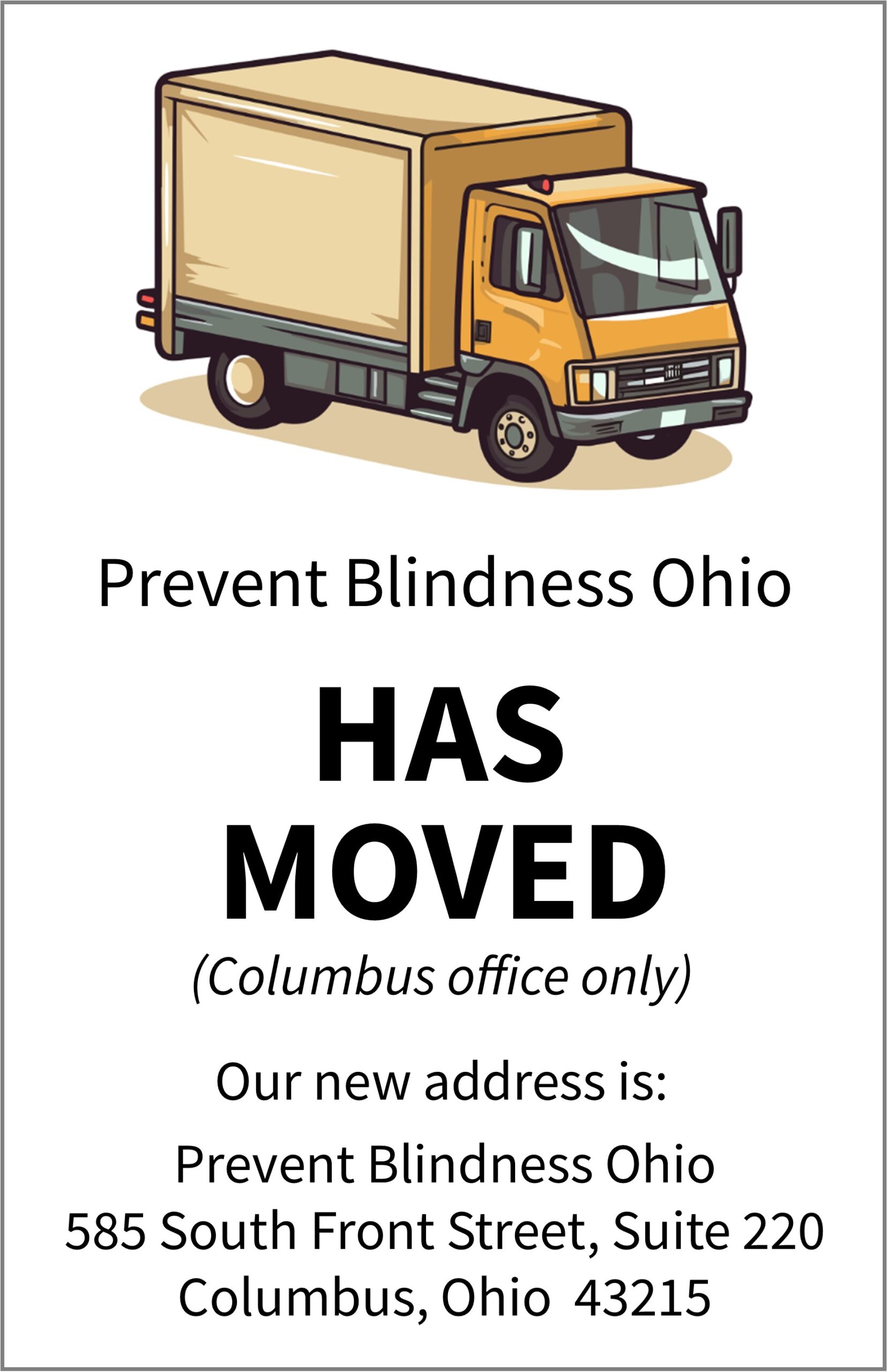Prevent Blindness Ohio Declares July as Dry Eye Awareness Month to Educate Public on Eye Disease that Affects more than 16 Million Americans
– Prevent Blindness Offers New Episode of its Focus on Eye Health Expert Series, Fact Sheets and Social Media Graphics in English and Spanish, and Web Resources to Educate Public on Dry Eye –
Columbus, OH (July 6, 2023) – Nearly 16 million Americans have dry eye, according to the National Eye Institute (NEI). Dry eye occurs when there is not enough tear film produced, the tear film is not draining properly from the eye, or the tear film is not the quality needed to maintain the health of the eye. If left untreated, dry eye can cause damage to the cornea.
In an effort to educate the public on dry eye, Prevent Blindness Ohio has declared July as “Dry Eye Awareness Month.” Information is available on dry eye risk factors, symptoms, and treatment options through a variety of resources, including fact sheets and shareable social media graphics, available in English and Spanish, and a dedicated web page: https://preventblindness.org/understanding-dry-eye.
This year, Prevent Blindness is offering a new episode of the Focus on Eye Health Expert Series, “Dry Eye and Meibomian Gland Dysfunction (MGD),” featuring April Jasper, OD, FAAO, Advanced Eyecare Specialists. Dr. Jasper shares her unique experience as a dry eye patient as well as an eyecare provider. MGD is a condition when the eyelid glands do not produce enough oil, or it is of poor quality.
For the third consecutive year, OCuSOFT ® Inc., a privately-held eye and skin care company dedicated to innovation in eyelid hygiene and ocular health, is partnering with Prevent Blindness Ohio in support of Dry Eye Awareness Month.
Risk factors for dry eye include:
- Being more than 50 years old
- Hormonal changes
- Refractive surgery (for example, Lasik)
- Inflammation of the eyelids
- Environmental conditions, such as allergies, exposure to smoke, or a dry climate
- Prolonged use of digital screens, such as computers
- Wearing contact lenses
- Medical conditions such as diabetes, thyroid eye disease, rheumatoid arthritis, lupus, Sjogren’s syndrome, and certain other autoimmune diseases
Additionally, taking certain medicines increases the risk of dry eye. According to the American Academy of Ophthalmology, these include diuretics (water pills) for high blood pressure, beta-blockers for heart problems or high blood pressure, allergy and cold medicines (antihistamines), sleeping pills, anxiety and antidepressant medicines, and heartburn medicines. Patients must inform their eyecare professional of all medications they are taking in order to treat dry eye and other eye conditions effectively.
“Dry eye is a serious condition that may have long-term effects on eye health, if left untreated,” said Amy Pulles, President & CEO of Prevent Blindness Ohio. “We encourage patients to talk with their eye doctors about their dry eye symptoms, and work together to form an effective treatment plan to keep eyes healthy for years to come.”
For more information on dry eye, please visit PreventBlindness.org/understanding-dry-eye, or contact Prevent Blindness Ohio at (800) 301-2020 or pbohio.org
About Prevent Blindness, Ohio Affiliate
Founded in 1908, Prevent Blindness is the nation’s leading volunteer eye health and safety organization dedicated to fighting blindness and saving sight. The Ohio Affiliate of Prevent Blindness serves all 88 Ohio counties, providing direct services to 1,000,000 Ohioans annually and educating millions of consumers about what they can do to protect and preserve their precious gift of sight.
For more information or to contribute, call 800-301-2020 or donate here.
Visit us at pbohio.org. Follow us: facebook.com/pbohio
###


